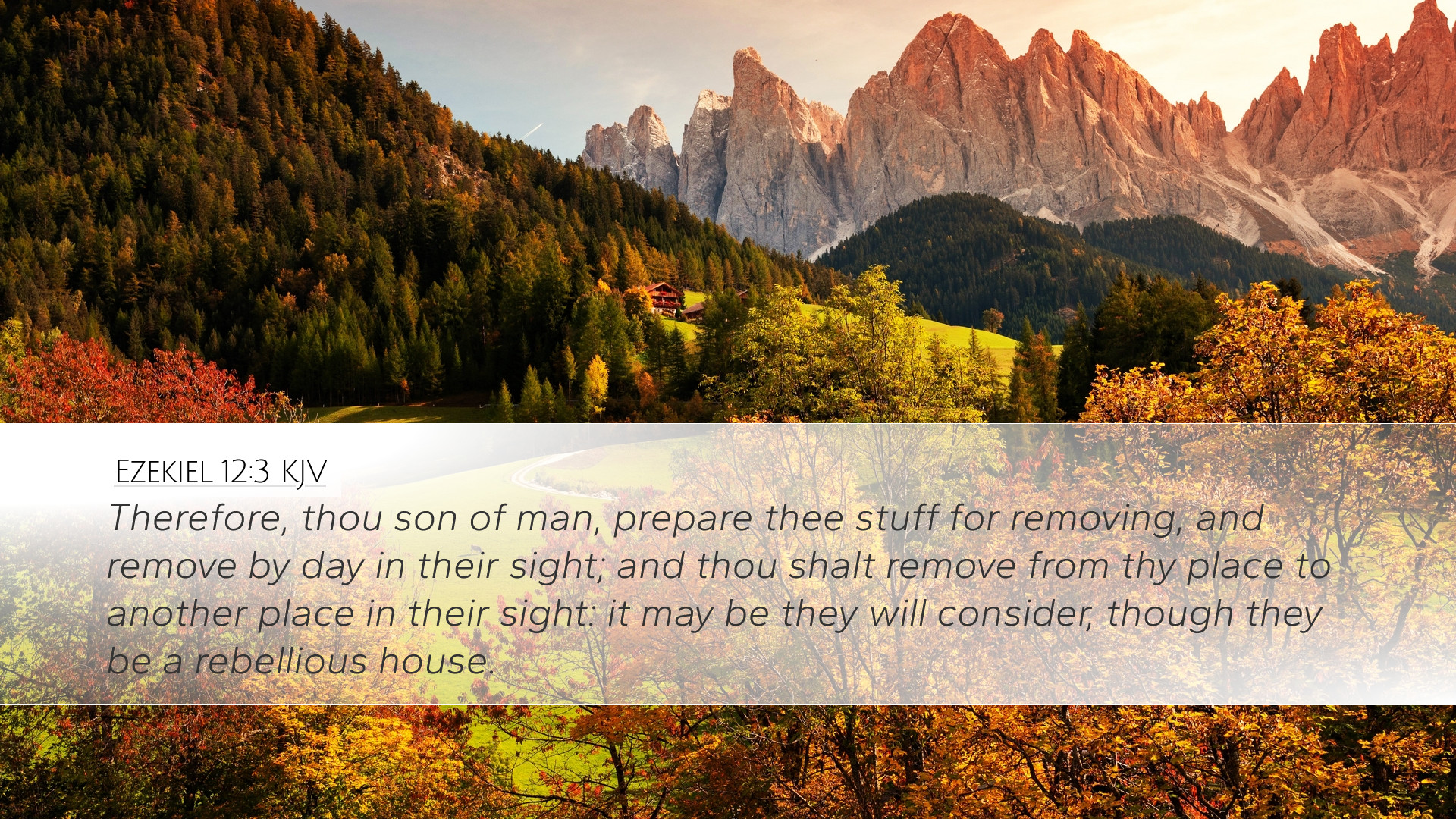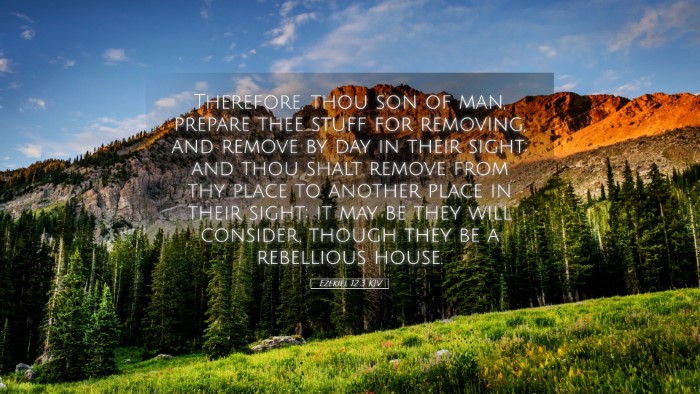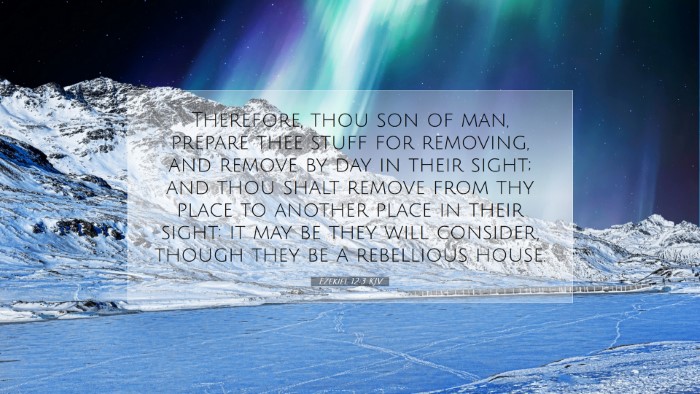Bible Commentary on Ezekiel 12:3
Ezekiel 12:3 states: "Therefore, thou son of man, prepare thee stuff for removing, and remove by day in their sight; and thou shalt remove from thy place to another place in their sight: it may be they will consider, though they be a rebellious house."
This verse is part of a broader prophetic narrative where God utilizes tangible actions to illustrate the impending judgments upon Israel. The command for Ezekiel to pack and move serves as a poignant symbol and demonstration of the drastic changes and upheaval that the Israelites would experience.
Contextual Analysis
Historical Context: Ezekiel prophesied during the Babylonian Exile, a period marked by significant turmoil for the Israelites. They faced not only physical displacement but also spiritual challenges as the identity of God's chosen people was called into question.
Thematic Elements: The thematic presence of rebellion is critical here. Ezekiel is directly addressing a "rebellious house;" thus, the audience is not merely passive observers but active participants in their spiritual downfall.
Commentary Insights
Matthew Henry's Commentary:
Henry emphasizes the necessity of divine signals to provoke thought and reflection among the Israelites regarding their state. The act of moving was not merely for spectacle; it was a prophetic action to make them aware of the coming changes and God's forthcoming judgments.
- Divine Instruction: Ezekiel’s task was an act of obedience, demonstrating how prophetic actions are often a means for God to communicate with His people.
- Engaging the Rebellious: The hope was that by witnessing Ezekiel's actions, the rebellious people might be stirred to consider their ways and repent.
Albert Barnes' Commentary:
Barnes adds depth by discussing the significance of the act of removal. He posits that this action symbolizes not just physical loss, but also the emotional and spiritual ramifications of exile. The act serves as a stark reminder of the consequences of rebellion.
- Consideration of Actions: Barnes believes that the removal was a call to acknowledge the severity of their situation. It serves to rouse them from complacency.
- Symbolism of Stuff for Removing: This is illustrative of the upcoming dispossession and the loss of their homes and heritage.
Adam Clarke's Commentary:
Clarke further explores the prophetic significance behind the act outlined in this verse. He points out that communication from God comes through various means, including actions as powerful as words.
- Moral Implications: Clarke highlights that this act of moving does not only represent physical relocation but also emphasizes spiritual loss and disconnection from God.
- Encouragement to Reflect: The intent behind Ezekiel’s actions was to jolt the people into acknowledging their need to return to God.
Theological Reflections
This verse invites deep theological reflection on the nature of prophecy and its role in calling people to repentance. The dynamic interplay between divine commands and human actions underscores the seriousness with which God takes His covenant and the consequences of turning away from Him.
God's Mercy in Judgment: Despite the gravitas of the message, underlying this prophetic act is a thread of mercy. The hope expressed — “it may be they will consider” — shows that God always desires repentance over judgment.
Application for Today
For today's pastors and scholars, Ezekiel 12:3 serves as a reminder of the importance of significant actions in our ministry. Just as Ezekiel's physical movement carried a profound message, our actions must also reflect our faith and the urgency of God's message today.
- Engagement with the Community: Like Ezekiel, we should engage our communities in thoughtful repentance through both words and actions.
- Hope in Balance of Prophecy: Acknowledge the balance between warning of judgment and the invitation to grace; both are essential in our preaching.
Conclusion
Ezekiel 12:3 is not just an isolated verse but a part of the grand narrative of God's interaction with His people. Through the lens of historical and contemporary interpretation, it beckons us to consider the weight of our actions and the depth of our relationship with God.


